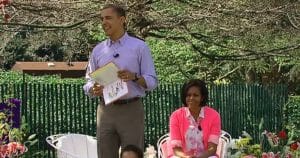Jack Smith Decides Against Fast-Tracking Trump Hearing in Wake of SCOTUS Ruling
Special counsel Jack Smith has reversed his initial decision to push for expedited hearings in the election interference case against former President Donald Trump.
Smith's course correction was driven by a U.S. Supreme Court decision on presidential immunity, and hearings in the case will now be postponed until after the upcoming election, as Breitbart reports.
Serving as special counsel, Smith previously sought to expedite proceedings in his Washington, D.C. case against Trump focusing on allegations of election interference. This early push was aimed at securing a swift resolution.
However, a Supreme Court decision issued on July 1, which upheld certain immunities for presidents regarding actions taken in their official capacity, has significantly altered the landscape. This ruling prompted Smith to adjust his strategy and timeline for the hearings.
Judge Tanya Chutkan, overseeing the case, had initially set the hearings for this fall. The goal was to determine which of Trump’s actions during his presidency were official and thus potentially immune from prosecution.
Supreme Court Ruling Shifts Legal Strategy
In the wake of the Supreme Court's decision, the necessity of expediting these determinations has been reevaluated. The court’s ruling introduces a new layer of complexity to the proceedings, potentially extending the timeline significantly.
Chutkan is expected to provide more clarity on the future course of this legal battle in a hearing scheduled for Sept. 5. This will be a crucial moment for both legal teams as they adjust their strategies based on the high court’s ruling. The delay in the proceedings means that any legal determinations on the applicability of presidential immunity to Trump’s actions will now occur after the national elections.
Continued Legal Challenges and Uncertainty
In addition to the impacts of the Supreme Court decision, Smith’s authority as special counsel was successfully challenged in a separate legal proceeding. A federal judge in Florida ruled his appointment unconstitutional, further complicating the trajectory of the cases against the former president.
These legal setbacks have cast a shadow over the proceedings, with ongoing challenges that could alter the course of the election interference case significantly. If Trump were to reclaim the presidency, such an outcome could potentially result in the dismissal of the case altogether. The uncertainty surrounding the special counsel’s authority and the recent judicial rulings continue to intertwine, creating a complex legal environment for the case to proceed.
Trump Campaign Reacts to Legal Developments
Reacting to these developments, Trump campaign spokesman Steven Cheung sharply criticized the ongoing proceedings. He accused the Democrats of using the justice system against Trump to influence the election, labeling the efforts as a continuation of what he termed "liberal lawfare" against the former president.
“The Comrade Kamala Harris-Crooked Joe Biden witch hunts against President Trump have imploded just like their failed campaign and should all be dismissed in light of the Supreme Court’s historic decision on immunity and other vital jurisprudence,” Cheung said.
He added, “It is now abundantly clear to everyone that dangerously liberal Democrats like Kamala Harris weaponized the justice system against their chief political opponent in order to interfere in the election. The lies of the liberal lawfare pursuit of President Trump have blown up spectacularly.”
Political and Legal Stakes Are High
As the legal and political battles intertwine, the stakes continue to escalate. The outcome of these proceedings could have profound implications not only for Trump but also for the broader political landscape in the United States.
“President Trump’s team will continue to fight and defeat the hoaxes at every turn. Only President Trump and JD Vance can save our Constitution and Make America Great Again,” concluded Cheung, reflecting the campaign’s combative stance on the issues at hand.
With the legal landscape continually evolving, all eyes will be on the upcoming Sept. 5 hearing, which could significantly influence the future political and legal contours of the United States.




